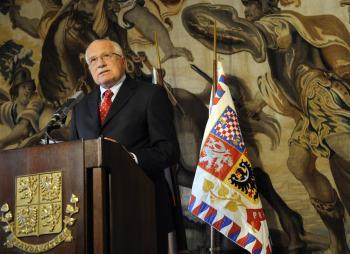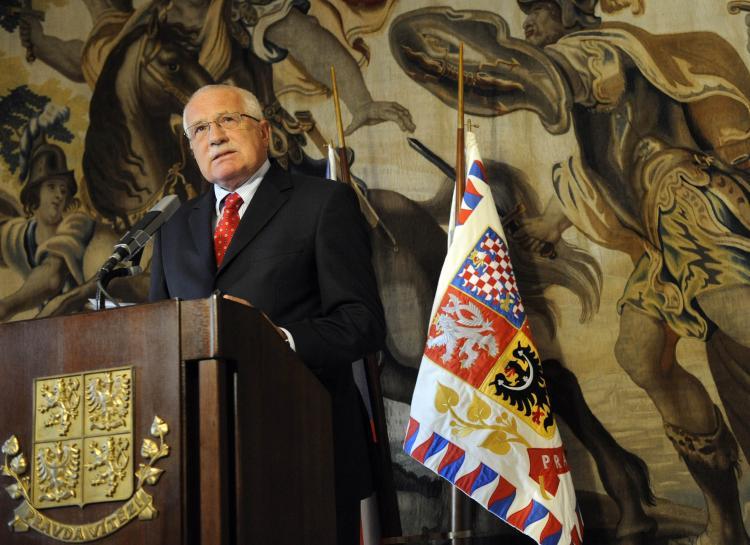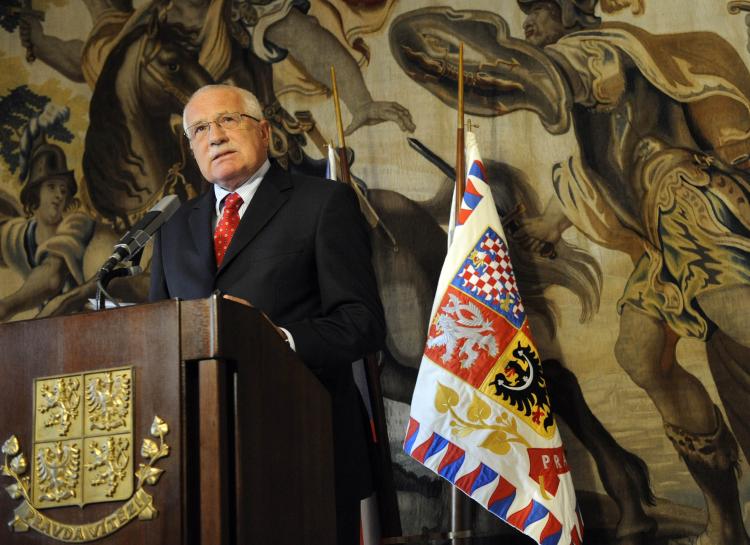Czech President Promises Not To Block Lisbon Treaty
The ratification of the Lisbon Treaty is one step closer to being realized.

Czech President Vaclav Klaus won the opt-out of the Charter of Fundamental Rights. His signature will end the ratification process of the Lisbon Treaty, equivalent of the European Constitution. Michal Cizek/AFP/Getty Images
|Updated:





